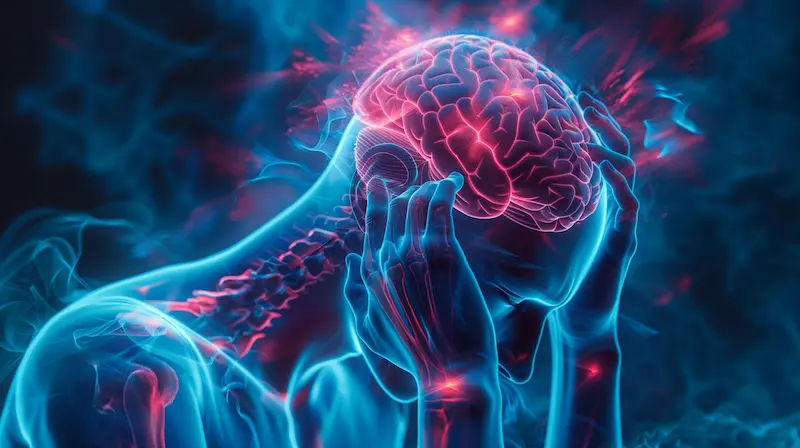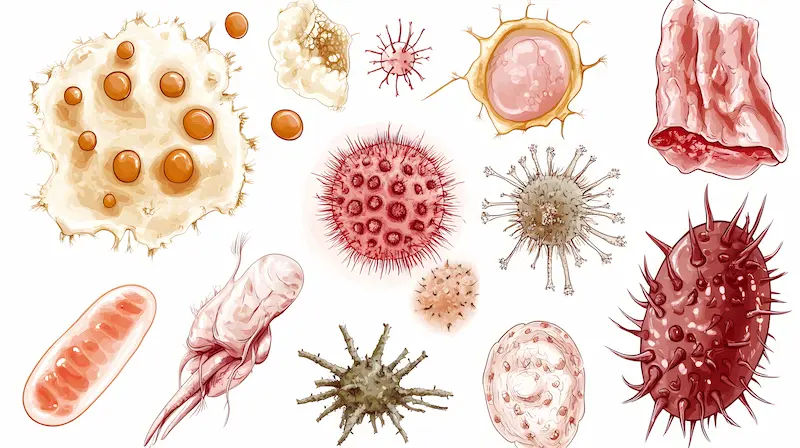Blood Disorder Types, Symptoms, and Treatments
Discover common blood disorders, their types, symptoms, causes, and treatments. Learn diagnosis methods, lifestyle tips, and when to seek medical help for better health management.

Written by Dr. Rohinipriyanka Pondugula
Reviewed by Dr. Siri Nallapu MBBS
Last updated on 13th Jan, 2026

Blood disorders affect millions of people worldwide, disrupting the normal functioning of blood cells and leading to various health complications. If you or a loved one has been diagnosed with a blood disorder, it’s natural to feel concerned. However, understanding the condition, its symptoms, and available treatments can help you manage it effectively.
This article will guide you through the common types of blood disorders, their symptoms, causes, and treatment options. We’ll also share practical tips to improve your quality of life and when to seek medical help.
What Are Blood Disorders?
Blood disorders occur when something goes wrong with your blood cells; red blood cells (RBCs), white blood cells (WBCs), platelets, or plasma. These disorders can affect oxygen transport, immunity, clotting, or overall blood production.
Common Types of Blood Disorders
1. Anemia – A condition where the body lacks enough healthy RBCs to carry oxygen. Common types include:
- Iron-deficiency anemia (due to low iron)
- Vitamin B12 deficiency anemia
- Aplastic anemia (when the bone marrow doesn’t produce enough RBCs)
2. Hemophilia – A rare genetic disorder where blood doesn’t clot properly, leading to excessive bleeding.
3. Leukemia – A type of blood cancer where abnormal WBCs multiply uncontrollably, affecting immunity.
4. Lymphoma – Another blood cancer affecting the lymphatic system (part of the immune system).
5. Thrombocytopenia – Low platelet count, leading to easy bruising and bleeding.
6. Sickle Cell Disease – A genetic disorder where RBCs become crescent-shaped, causing blockages in blood vessels.
7. Thalassemia – A genetic disorder leading to abnormal hemoglobin production, causing anemia.
Symptoms of Blood Disorders
Symptoms vary depending on the type of disorder but may include:
- Fatigue and weakness (common in anemia)
- Pale or yellowish skin
- Shortness of breath
- Frequent infections (due to low WBCs)
- Easy bruising or bleeding (low platelets or clotting issues)
- Swollen lymph nodes (seen in lymphoma)
- Pain in bones or joints (sickle cell disease)
- Dizziness or headaches
If you experience any of these symptoms persistently, consult a doctor for proper diagnosis.
Consult an Specialist for the best advice
Causes and Risk Factors
Blood disorders can be caused by:
- Genetic factors (e.g., hemophilia, sickle cell disease)
- Nutritional deficiencies (iron, vitamin B12, or folate deficiency)
- Infections or autoimmune diseases
- Bone marrow disorders (leukemia, aplastic anemia)
- Medications or chemotherapy
- Exposure to toxins (e.g., benzene, radiation)
Some people are at higher risk due to family history, poor diet, or chronic illnesses.
Diagnosis and Treatment Options
If a blood disorder is suspected, your doctor may recommend:
- Complete Blood Count (CBC) – Checks RBCs, WBCs, and platelets.
- Bone Marrow Biopsy – For leukemia or lymphoma diagnosis.
- Genetic Testing – For hereditary disorders like sickle cell or thalassemia.
- Clotting Tests – For hemophilia or thrombocytopenia.
Get Your Health Assessed
Treatment Depends on the Disorder
1. Anemia – Iron supplements, vitamin B12 injections, or dietary changes.
2. Hemophilia – Clotting factor replacement therapy.
3. Leukemia/Lymphoma – Chemotherapy, radiation, or stem cell transplant.
4. Sickle Cell Disease – Pain management, blood transfusions, or hydroxyurea.
5. Thrombocytopenia – Medications to boost platelet production.
Early diagnosis improves treatment success, so don’t ignore symptoms.
Lifestyle Tips for Managing Blood Disorders
While medical treatment is essential, lifestyle changes can help manage symptoms:
- Eat a Balanced Diet – Include iron-rich foods (spinach, lentils), vitamin C (oranges, bell peppers), and B12 (eggs, dairy).
- Stay Hydrated – Helps prevent complications in sickle cell disease.
- Exercise Moderately – Improves circulation but avoids overexertion.
- Avoid Infections – Wash hands frequently and stay up-to-date with vaccinations.
- Manage Stress – Meditation and gentle yoga can help.
When to See a Doctor?
Seek immediate medical attention if you experience:
- Severe fatigue or fainting
- Uncontrolled bleeding
- Sudden swelling or pain in limbs
- High fever with persistent infections
If you suspect a blood disorder, early testing can make a big difference.
Final Thoughts
Blood disorders can be challenging, but with proper diagnosis and treatment, many people lead healthy lives. If you’re experiencing symptoms, don’t hesitate to consult a specialist.
Need help? You can book a consultation or blood test through Apollo 24|7 for expert guidance and care. Early detection and treatment can significantly improve your health and well-being.
Consult an Specialist for the best advice
Consult an Specialist for the best advice

Dr. Vivek D
General Physician
4 Years • MBBS
Bengaluru
PRESTIGE SHANTHINIKETAN - SOCIETY CLINIC, Bengaluru

Dr Syed Mateen Pasha
General Physician
2 Years • MBBS
Bengaluru
PRESTIGE SHANTHINIKETAN - SOCIETY CLINIC, Bengaluru

Dr. Syed Ismail Ali
General Practitioner
7 Years • MBBS
Hyderabad
Apollo 24|7 Clinic, Hyderabad

Dr. Madhuri Sai Sreepada
General Practitioner
9 Years • MBBS
Hyderabad
BRIGHT SMILES MEDICARE & DENTAL CARE, Hyderabad

Dr. Johnson. S
General Practitioner
7 Years • MBBS MD(Preventive and social Medicine)
Pune
Apollo Clinic, Nigdi, Pune
Consult an Specialist for the best advice

Dr. Vivek D
General Physician
4 Years • MBBS
Bengaluru
PRESTIGE SHANTHINIKETAN - SOCIETY CLINIC, Bengaluru

Dr Syed Mateen Pasha
General Physician
2 Years • MBBS
Bengaluru
PRESTIGE SHANTHINIKETAN - SOCIETY CLINIC, Bengaluru

Dr. Syed Ismail Ali
General Practitioner
7 Years • MBBS
Hyderabad
Apollo 24|7 Clinic, Hyderabad

Dr. Madhuri Sai Sreepada
General Practitioner
9 Years • MBBS
Hyderabad
BRIGHT SMILES MEDICARE & DENTAL CARE, Hyderabad

Dr. Johnson. S
General Practitioner
7 Years • MBBS MD(Preventive and social Medicine)
Pune
Apollo Clinic, Nigdi, Pune





